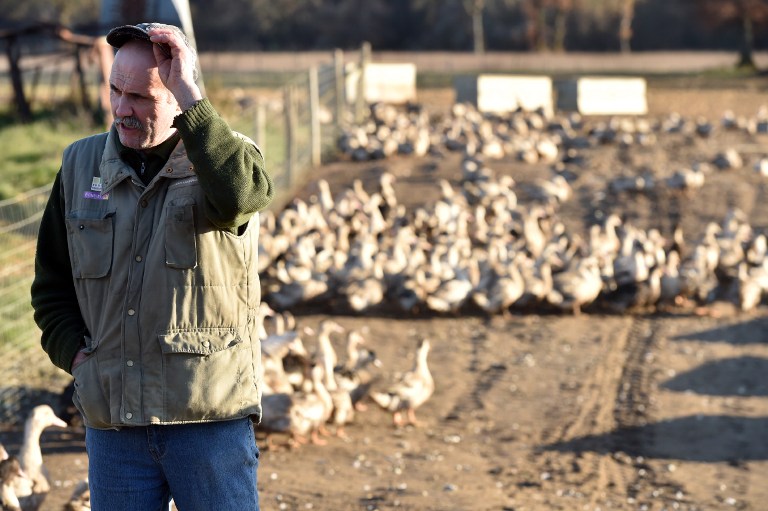
Authorities in south-west France began a cull of hundreds of thousands of ducks January 5 as authorities scramble to contain an outbreak of a virulent strain of bird flu sweeping Europe. The farm birds in France’s foie gras heartland are to be slaughtered to stem the spread of an outbreak of the highly pathogenic H5N8 virus.
/ AFP PHOTO / REMY GABALDA
PARIS, France (AFP) – Authorities in southwest France began a cull of hundreds of thousands of ducks Thursday as the government scrambles to contain an outbreak of a virulent strain of bird flu sweeping Europe.
The farm birds in France’s foie gras heartland are to be slaughtered to stem the spread of the highly pathogenic H5N8 virus.
Several culls have already taken place since December, dealing a blow to producers of foie gras — a controversial delicacy made from the livers of ducks and geese after force-feeding — in the run-up to the important Christmas season.
But until now only farms with infected birds were affected.
The latest cull targets free-range ducks raised for foie gras in the Gers, Landes, Hautes-Pyrenees and Pyrenees-Atlantiques areas, who risk contracting the virus from wild birds.
Duck farmers have accused the government of being slow to respond at the start of the outbreak, abetting its spread and increasing the number of birds now being led to the slaughter.
Christian Candelon, a duck farmer in Gers, said the “government has allowed the situation to worsen”.
“If we had reacted a month earlier, we would have been culling 100,000 ducks instead of one million,” he said.
“It’s catastrophic for us,” said Isabelle Daugreilh, who has been in the business for 35 years.
“This evening when I go back to my village, there will not be a single duck.”
Since October, the strain has been detected in at least 13 European countries, according to the French government — including Germany, the Netherlands, Denmark, Poland, Hungary and Sweden.
The French government has promised that the farmers will be compensated, but some have complained of being underpaid following a similar outbreak in 2015 that set the industry back an estimated half a billion euros.
Most of the cases of infection have been in farms in the southwest but a handful have also been detected in wild ducks in the north.
In South Korea, over 10 million farm chickens and ducks have been slaughtered this winter as that country battles its worst bird flu outbreak since 2014.
In Japan, a million farm birds have been culled.








